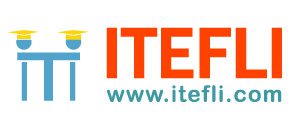An Overview of the TEFL Programme
The TEFL programme unites the important skills of reading, writing, speaking and listening. In particular, good oral work enhances pupils’ understanding of language in both oral and written forms and of the way language can be used to communicate. It is also an important process, through which pupils read and compose texts, and is relevant to teaching across the whole curriculum. Skills, especially those that focus on reading and writing non-fiction texts, should be closely linked to and applied in every subject.
It is better for ESL students to work from the familiar to the unfamiliar. Some of the topics used are Home, Family, Likes and Dislikes, Food, Sports, Recreation, Clothes, Colours, Countries and Nationalities, Pets and Animals, Weather and Transport. These areas provide a wide range of descriptive and communicative vocabulary and an opportunity to practise and use basic structures as well as many other language skills. These topics can be reviewed as students’ progress through the ESL programme, in order to suit their growing interests.
ESL students should
- read and write with confidence, fluency and understanding;
- understand the sound and spelling system and use this to read and spell accurately;
- have fluent and legible handwriting;
- have an interest in words and their meanings and a growing vocabulary;
- operate effectively in spoken language;
- have comprehensive knowledge of basic language structures and should be able to use them appropriately in most situations.
Philosophy, Aims and Objectives
An ESL Department or Faculty should have a clearly laid out Philosophy, defined Aims and realistic Objectives. An example has been presented which may be referred to when structuring your own. Many of the points may not be relevant to your school and its particular circumstances. These may simply be ignored and substituted with pertinent and relevant points of your own.
Philosophy
- Language learning is an individual process, which consists of both formal input from the
ESL teacher and informal input from other students, friends and family.
- We recognise that the most effective learning occurs when students are exposed to English in their daily operations outside of the ESL classroom. We aim to increase the amount of
English is spoken in the school outside the classroom using activities and incentives.
- ESL students may be very bright and enthusiastic but are frustrated by their shortfalls in language. Our approach, teaching methods and materials are designed with the specific needs of these students in mind.
- Fluency in English can take several years, and students will need support for a period after leaving the intensive ESL programme.
- ESL students will follow a progressive programme, allowing them to be integrated into mainstream classes as soon as possible.
- The ESL programme will need to be flexible, as students will be joining the course at different times of the year. Furthermore, the students will have very different language abilities, and the programme should target their individual requirements.
- To identify those students with learning difficulties.
Aims
- To identify all students who need to be placed in the ESL programme.
- To provide an ESL programme that will provide students with the level of English skills required to meet their academic and social needs.
- To ensure the rapid integration of new students into the school community.
- To support mainstream teachers and ensure the subject matter is made more accessible to the students with weaker language abilities.
Objectives
- To devise an accurate method of assessing ESL students upon entry to the school, and on
a continuous basis throughout their time at the school.
- To help all ESL students decide the best choice regarding academic options. In some cases, students will be encouraged to withdraw from mainstream subject classes and use this time to attend ESL classes.
- To group students into one of three different language levels.
- To liaise very closely with mainstream subject teachers to identify students who will benefit from an ESL program.
- To design a database highlighting the ESL need requirements of all students.
Links:
TEFL Courses & TEFL Training Programmes
TEFL Jobs & English Teaching Positions

